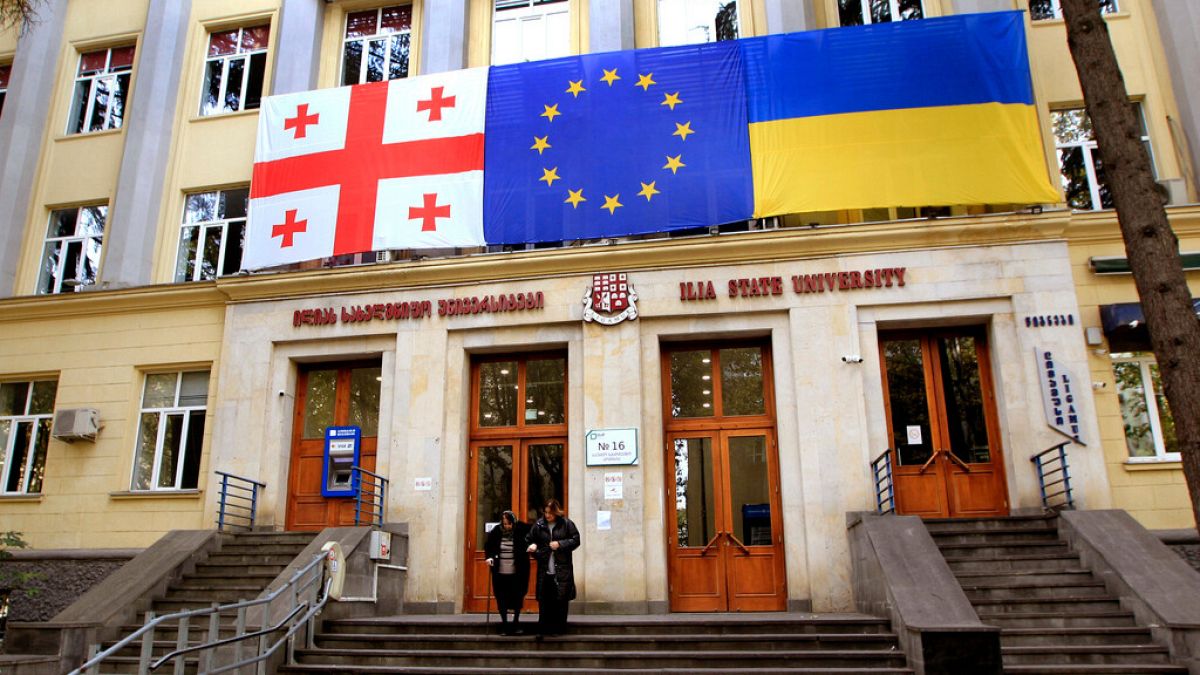Georgians are currently voting in an election that is considered crucial in determining the country’s future, whether it will align more closely with the European Union or move towards Russia. The ruling party, Georgian Dream, has claimed a majority of 53% based on electronic votes from 90% of precincts counted. However, there have been reports of voting violations and allegations of voter manipulation and fraud by the opposition parties. The opposition, including United National Movement, Strong Georgia, Coalition for Change, and Gakharia for Georgia, are concerned that the ruling party is leading the country away from the EU. Despite these allegations, Prime Minister Irakli Kobakhidze has denied the accusations, stating that the party is committed to European integration, and has no diplomatic relations with Russia.
The election in Georgia has been described as one of the most critical in the country’s history, with tensions running high as the ruling party and opposition clash over the country’s future direction. The opposition parties have raised concerns about voter manipulation and fraud, with allegations that the ruling party is steering the country towards Russia’s influence. Prime Minister Irakli Kobakhidze has refuted these claims, emphasizing the party’s dedication to European integration and asserting that there are no diplomatic relations with Russia. Despite the controversy and accusations surrounding the election, the ruling party has claimed a majority of 53% based on electronic votes, with the full results yet to be released.
The election in Georgia is seen as a pivotal moment in the country’s democracy, with the outcome likely shaping its future relationships with the European Union and Russia. The ruling party, Georgian Dream, has been accused by opposition parties of manipulating the vote in its favor, prompting concerns about the country’s trajectory. However, Prime Minister Irakli Kobakhidze has defended the party’s commitment to European integration and denied any affiliations with Russia. As tensions continue to rise in the aftermath of the election, Georgians await the full results to be released on Sunday morning to determine the final outcome of the critical vote.
As the election in Georgia unfolds, tensions are high as the ruling party and opposition parties clash over the country’s direction towards the European Union or Russia. Amid allegations of voter manipulation and fraud, the opposition has raised concerns about the ruling party’s intentions to steer Georgia away from European integration. Prime Minister Irakli Kobakhidze has reassured the public that the party is committed to closer ties with the EU and emphasized that there are no diplomatic relations with Russia. With the full results of the election yet to be released, Georgians are on edge as they await the final outcome that will shape the country’s future trajectory.
The election in Georgia is viewed as a critical juncture in the country’s democracy, with the ruling party, Georgian Dream, claiming a majority based on electronic votes. However, the opposition parties have alleged voter manipulation and fraud, casting doubt on the legitimacy of the results. The opposition’s concerns revolve around the ruling party’s alleged shift towards Russia’s influence, moving away from closer ties with the European Union. Despite these accusations, Prime Minister Irakli Kobakhidze has defended the party’s stance on European integration and denied any connections with Russia. Georgians continue to closely monitor the developments and await the full release of the election results.
The election in Georgia has sparked controversy and division, with the ruling party, Georgian Dream, claiming victory amidst allegations of voter manipulation and fraud by the opposition parties. The outcome of the election is crucial in determining Georgia’s future relationship with the European Union and Russia, with tensions running high as the country awaits the full results. Prime Minister Irakli Kobakhidze has reaffirmed the party’s commitment to European integration and has denied any affiliations with Russia, emphasizing the importance of democratic principles in the electoral process. As Georgians follow the developments and reactions surrounding the election, the country stands at a pivotal moment in its history, with the results set to shape its future trajectory.











